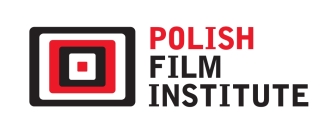Ten Years After the Conference in Kamień Śląski
Michał Pabiś-Orzeszyna
michal.pabis@uni.lodz.plUniversity of Lodz (Poland)
https://orcid.org/0000-0003-4391-2846
Abstract
In her book Od Wydziału Propagandy Filmowej do Centralnego Urzędu Kinematografii. Pierwsza dekada partyjno-państwowego monopolu w polskim kinie [From the Department of Film Propaganda to the Central Office of Cinema: The First Decade of Party-State Monopoly in Polish Cinema] (2022), Ewa Gębicka describes one of the most ambiguous periods in the history of Central European film: the years 1944-1955. She argues that the periodization accepted in film studies – the chaotic reign of filmmakers (1944-1947) followed by the offensive of political power (1948-1955) is accurate. Her assessment of the entire decade is critical: she pictures the postwar decade as a period of disregard for the autonomy of art, the needs of the audience, and the alleged free-market essence of cinema. Her conclusions are grounded in archival research. And since Gębicka has done massive work, there is a temptation to accept it as a given. However, her interpretations deserve a dialogue. The historiographical poetics she represents should be understood as emblematic of the changing ways of studying the cinema of the Polish People’s Republic, with all their advantages and ambivalences.
Keywords:
industrialization, socialist realism, cinemas in Polish People’s Republic, film distributionReferences
[J. G.] (1945, 21 lipca). Spoważniała Muza. Wizyta u polskich filmowców. Rzeczpospolita, s. 21.
Google Scholar
Benjamin, W. (2005). Pasaże (red. R. Tiedemann, tłum. I. Kania). Warszawa: Wydawnictwo Literackie.
Google Scholar
Elsaesser, T., Barker, A. (1990). Early Cinema: Space, Frame, Narrative. London: British Film Institute.
DOI: https://doi.org/10.5040/9781838710170
Google Scholar
Gębicka, E. (2022). Od Wydziału Propagandy Filmowej do Centralnego Urzędu Kinematografii. Pierwsza dekada partyjno-państwowego monopolu w polskim kinie. Katowice: Wydawnictwo Uniwersytetu Śląskiego.
Google Scholar
Latkowski, S., Majewski, M., Bielakowski, C., Nisztor, P., Burzyńska, A., Sadowski, G., Apelska, J. (2014, 27 grudnia). Afera podsłuchowa. Wprost. https://www.wprost. pl/486636/teksty-roku-afera-podsluchowa.html
Google Scholar
Leszczyński, A. (2015). Antyliberalizm i kolektywizm. Polityka i gospodarka od II wojny światowej do lat siedemdziesiątych na przykładzie polskich programów powojennej odbudowy. Pamięć i Sprawiedliwość, (1), ss. 131-143.
Google Scholar
Madej, A. (1997). Jest źle, ale musi być lepiej. Kwartalnik Filmowy, (18), ss. 190-206.
Google Scholar
Zwierzchowski, P., Kornacki, K. (2014). Metodologiczne problemy badania kina PRL-u. Kwartalnik Filmowy, (85), ss. 28-39.
Google Scholar
Authors
Michał Pabiś-Orzeszynamichal.pabis@uni.lodz.pl
University of Lodz Poland
https://orcid.org/0000-0003-4391-2846
Assistant Professor at the Department of Film and Audiovisual Media at the University of Lodz. Since 2019, he has been researching immersive media (Laboratory of Visual Narration at the Lodz Film School) and environmental media (as co-leader of the NECS Sustainable Media Workgroup). Since 2021, he has held the position of chief researcher in the projects: “Development of a National Strategy for the Professional Education of the Film animation and Special Effects Industries for 2023-2030” (European Economic Area Financial Mechanism) and “Animation Studios in Gottwaldov and Lodz (1945/47-1990) – Comparative Collective Biography” (National Science Centre and Czech Grant Agency). His recent sustainability-related article is “Green(ing) Media (Studies),” co-written with Judith Keilbach (in NECSUS Vol. 10 No. 2).
Statistics
Abstract views: 166PDF downloads: 126
License
Copyright (c) 2023 Michał Pabiś-Orzeszyna

This work is licensed under a Creative Commons Attribution 4.0 International License.
The author grants the publisher a royalty-free non-exclusive licence (CC BY 4.0) to use the article in Kwartalnik Filmowy, retains full copyright, and agrees to identify the work as first having been published in Kwartalnik Filmowy should it be published or used again (download licence agreement). The journal is published under the CC BY 4.0 licence. By submitting an article, the author agrees to make it available under this licence.
In issues from 105-106 (2019) to 119 (2022) all articles were published under the CC BY-NC-ND 4.0 licence. During this period the authors granted a royalty-free non-exclusive licence (CC BY-ND 4.0) to use their article in „Kwartalnik Filmowy”, retained full copyright, and agreed to identify the work as first having been published in our journal should it be published or used again.
Most read articles by the same author(s)
- Krzysztof Jajko, Michał Pabiś-Orzeszyna, Tardigrades, Lasers and Transformations in Steel: Attractions of Polish Educational Cinema , Kwartalnik Filmowy: No. 99 (2017): Tricks, Special Numbers, Attractions
- Michał Pabiś-Orzeszyna, The Old and the New: Introduction to the Mythology of Film Historiography , Kwartalnik Filmowy: No. 85 (2014): Film and Media – the Past and the Future











